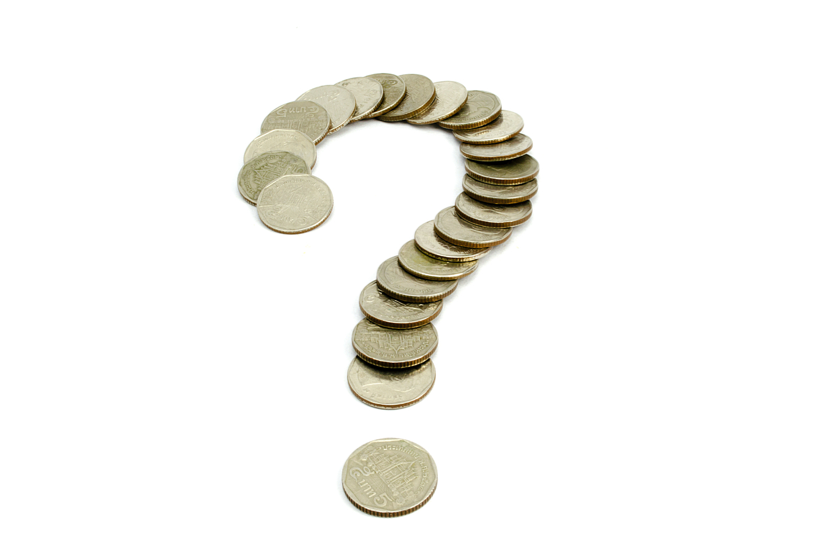
Bitcoin Isn't Evil, and Here's What Gives it Value
American economist Paul Krugman recently asked a valid question that is on the minds of many other bitcoin sceptics: where does the value of bitcoin as a unit (BTC) comes from?
Yes, bitcoin can be a wonderful technology to transfer ownership of these units, but why should they be worth $1, $1,000 or $1,000,000?
Fred Ehrsam from Coinbase responded with a sophisticated version of what most bitcoiners tell people when explaining why bitcoin is a valuable asset. The usual response is that bitcoin is worth something because of its awesome transacting capabilities. He wrote in his piece titled 'Bitcoin Is Good':
"In the present, the value of bitcoin as a currency can be viewed as the sum of the cost savings of using the bitcoin network for payments rather than alternative payment networks.
If 1.00 bitcoin is currently used for 10 transactions a year with an average value of $100, the bitcoin network is three percent cheaper than the average next best alternative, and this dynamic is maintained for 10 years, multiplying these arbitrary sample inputs values 1.00 bitcoin at $300. This does not require bitcoin to replace existing local currencies."
In my opinion, this is not really a satisfactory answer. To trade something of value it must have some value beforehand. So saying that it is valuable because it's so efficient to trade is circular logic.
Consider this example: if Fred uses the bitcoin network just to move his dollars around, the actual value of the whole BTC supply is irrelevant to him. It could be $1 per coin or $10,000. He would still move the same $100 and get back $100 (provided volatility is not too high during the turnaround).
Similarly, all other awesome applications – secure timestamping, name systems, smart contracts, etc – all are equally possible regardless of how much one bitcoin is worth.
So what gives BTC value?
In the first year of bitcoin, there were almost no transactions, but people were spending their energy on generating bitcoins. The only two reasons that come in my mind are:
- Value as a collectible, in a similar manner to people collecting rare metals, stones, shells, postal stamps, paintings and baseball cards.
- Value from betting that other people may find these collectibles valuable and thus would have to buy some of them from earlier collectors, thus making them richer.
Gold is valuable for the exact same reason. Not because it's shiny (many things are), but because it's rare, durable and mobile, and thus can be collected. And once collected, it can only increase in value when more people want it.
Once the collectible gets some value, it can become money. Once bitcoins became valuable, you could take advantage of the beautiful transfer network. But it always stays the same network: whether a hundred people use it or millions. So the network can't be responsible for any single price that people put on bitcoin.
Believers
Most bitcoiners love the technical beauty of the technology and feel bad about acknowledging that the price depends solely on the amount of "believers". All of them individually base their beliefs on the technical features, but there is no measurable way to deduce fair amount of "faith" from the technical properties.
Everyone decides individually how much money and time they want to sacrifice for their beliefs. Fred Wilson, for instance, likes technology very much, but does not (as he has previously admitted) own a lot of coins.On the other hand, some people invested without a clear understanding what bitcoin is, but just because it sounded cool.
There's clearly no rational way to tell how much money bitcoin "should be worth" today or tomorrow. Additionally, deducing value of bitcoin based on circulation metrics is faulty from the start as "circulation" does not really exist and all transfers happen only insofar as money already has some value to people. And then, frequency of transactions is independent from the total value of the supply. Bitcoins are frequently traded simply because they can be, but valued because they are valued. Gold is not traded that often, but it is still valued many times more than bitcoin.
For more insight regarding collectibles and early history of money please see the excellent article by Nick Szabo.
In the end, bitcoin is valuable as a collectible. Its reliability as a "store of value" depends on the number of people willing to hold it. The more people believe in the seriousness of bitcoin, the more they will add to this belief in the form of infrastructure around it, increasing people’s confidence about it even further.
Question image via Shutterstock.
DISCLOSURE
The leader in news and information on cryptocurrency, digital assets and the future of money, CoinDesk is a media outlet that strives for the highest journalistic standards and abides by a strict set of editorial policies. CoinDesk is an independent operating subsidiary of Digital Currency Group, which invests in cryptocurrencies and blockchain startups. As part of their compensation, certain CoinDesk employees, including editorial employees, may receive exposure to DCG equity in the form of stock appreciation rights, which vest over a multi-year period. CoinDesk journalists are not allowed to purchase stock outright in DCG.

